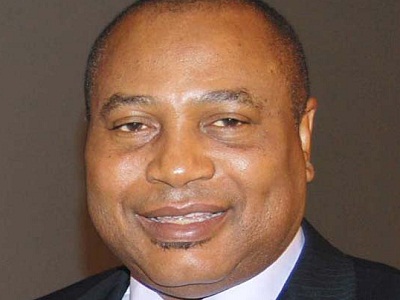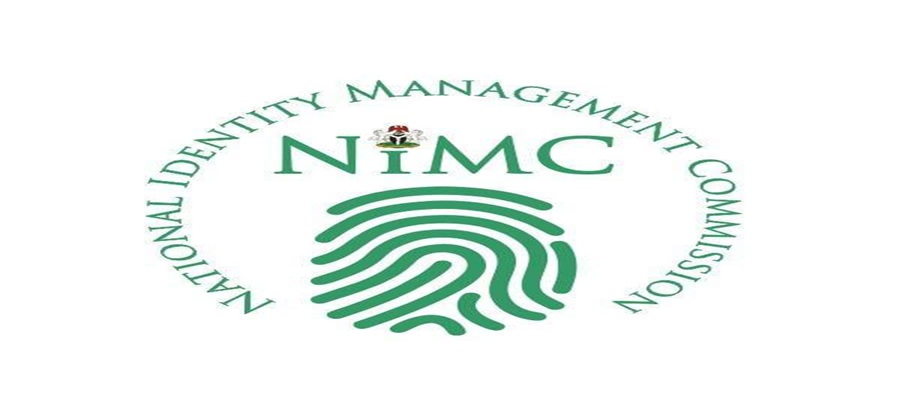Telecom
NCC Slams N647m Fines on GSM Operators over Poor Service

Nigeria Communications Commission (NCC) on Monday slammed a total fine of N647.5 million on Airtel, Globacom and MTN Nigeria, the three major GSM service providers for failing to meet the Key Performance Indicators (KPIs) for quality of service in the month of January 2014.
In other words, the services they provided for the period fell below expectation with dropped calls; and incomplete calls.
NCC has also barred Airtel, Globacom and MTN Nigeria from selling SIM Cards.
According to Reuben Muoka, head, Media & Public Relations (NCC), consequently, the three companies have been barred from selling SIM Cards with effect from March 1 to 31, and are also barred from all promotions in their networks until they improve on the failed KPIs for which they are sanctioned.
The details of the sanction showed that Airtel Network Ltd, and MTN Nigeria Communications Ltd, are to pay a fine of N185 Million each while Globacom Ltd is liable to the tune of N277,500.
In addition, each of the operators must pay the sanction amount on or before March 7, 2014, failure upon which each will be liable to pay N2,500,000 per day as long as the contravention persists.
He said that the sanctions, which were communicated to the three operators in a letter signed by Dr. Eugene Juwah, executive vice chairman of the Commission, explained that the Commission will carry out an audit of the three companies on March 1, 2014 and also on March 31st, 2014, to ensure that no sale of new SIM Cards takes place in any of the three networks within the period.
The letter made reference to an earlier directive of December 10, 2014, which warned the operators that “if the Quality of Service does not improve by 31st December, 2013, the Commission will be compelled to direct operators to, among others, suspend the activation of new SIMs and subscribers until such an operator can prove that it has met the Key Performance Indicators specified in the Regulations”.
According to Dr. Juwah, “The Commission after careful collation of statistics from the Network Operating Centres, NOC, of all major networks operators for the month of January 2014, has concluded that the service provided by some of the operators during the period fell below the Key Performance Indicators published by the Commission in the Quality of Service Regulations, as amended”.
Details of the sanction also indicated that Airtel failed on Call Setup Success Rate, CSSR, and SDCONG, while MTN failed on Call Setup Success Rate , CSSR and Drop Call Rate, DCR. On its part, Globacom failed on Call Setup Success Rate, CSSR, Drop Call Rate, DCR, and SDCONG.
The Key highlights of the sanction are that the concerned operators must adhere to the following conditions: 1. Payment of the fines shall be on or before March 7, 2014.
2. Failure to settle the said amount within the stipulated period, the operators shall continue to be liable to pay the sum of N2,500,000 ( Two Million, Five Hundred Thousand Naira Only) per day for as long as the contravention persist.
3. To stop the sale of new SIM Cards throughout the month of March 2014, with effect from March 1 to 31, 2014.
4. The Service Providers shall not churn or delete inactive or ( None revenue generating SIMs) from their networks during the period of March 1 to 31, 2014.
5. The Service Providers shall not supply new SIM Cards from their warehouses or other sources to its Dealers or third parties throughout the period from March 1-31, 2014.
6. The Service Providers shall stop all promotions until the KPIs which have been identified in their respective networks are positively addressed.
The directive further warned that “any deviation or alteration of provisioning pattern ( in terms of average daily number of provisioning) in the remaining days of February 2014 compared to the regular provisioning rates by the concerned service providers shall be construed as a breach to the Direction.
Telecom
Terra Moves to Expand in African Drone Sector, Secures $22m Funding

Olugbenga Agboola, Flutterwave CEO has joined a $22 million funding extension for Nigerian defensetech start-up Terra Industries as Africa’s fast-growing drone and security technology sector begins to attract capital far beyond traditional venture circles.

The round was led by Lux Capital, with participation from Agboola through Resilience17 Capital and returning investors including 8VC and Nova Global.
It follows an $11.75 million raise just weeks earlier, bringing Terra’s total funding to $34 million as the company accelerates expansion into high-risk security markets.
Terra, founded in 2024 by 24-year-old chief engineer Maxwell Maduka and CEO Nathan Nwachuku, builds autonomous drones and surveillance systems designed to protect critical infrastructure such as energy facilities, logistics corridors and industrial sites. The startup says it is already safeguarding assets worth billions of dollars while securing early federal and commercial contracts.
Agboola’s involvement highlights a broader shift in African tech investment patterns. While fintech has long dominated venture flows, escalating infrastructure sabotage and terrorism threats have elevated demand for locally developed security hardware.
“Nigeria’s drone ecosystem is rapidly evolving from hobbyist and mapping use cases toward industrial monitoring, border surveillance and energy protection, areas increasingly seen as foundational to economic stability.
“This is about backing infrastructure security at scale. Africa’s growth depends on resilient systems that protect critical assets,” said Agboola.
Terra CEO Nwachuku is adamant that locally engineered systems are better suited to African operating conditions. “We are building tools designed for the realities on the ground. Security technology should not always be imported when local innovation can respond faster and more effectively,” he stated.
Lux Capital partner Brandon Reeves underlined that the investor appetite, which has drawn fintech heavyweight interest such as Agboola, reflects rising cross-sector confidence in African defense technology as a commercial category. “Security is a prerequisite for economic growth,” he said.
“As Terra ramps production and expands regionally, its funding milestone illustrates a wider transformation. Drone and autonomous security platforms are no longer peripheral experiments but emerging pillars in Africa’s technology landscape, where fintech leaders and venture capital converge around safeguarding the infrastructure powering the continent’s next growth phase,” said Reeves
Telecom
Temu Assures Compliance Amid Nigeria Data Privacy Probe

Temu, the global e-commerce platform expanding in Nigeria, has officially addressed an inquiry from the Nigeria Data Protection Commission (NDPC) over alleged data privacy violations, confirming its commitment to compliance with the Nigeria Data Protection Act (NDPA) 2023.

Temu
The company’s response follows NDPC’s investigation into Temu’s data processing practices.
In a statement to Nigeria CommunicationsWeek, Temu stressed its dedication to local and international data protection standards, noting ongoing communication with the regulator. “At Temu, protecting user privacy and data security is a top priority. We are committed to complying with applicable laws and regulations in our data practices,” the statement read.
Temu further affirmed: “We can confirm that Temu has received the inquiry and is engaging with the Commission. We will continue to engage in open and constructive dialogue with the NDPC to address any questions or concerns.”
Under Dr. Vincent Olatunji’s leadership, NDPC has ramped up scrutiny of foreign digital platforms to safeguard Nigerian citizens’ personal data—from contact details to financial information—ensuring transparent and secure handling. For e-commerce giants like Temu, managing vast consumer data volumes demands strict regulatory alignment to sustain operations and trust in Africa’s biggest economy.
Industry observers view Temu’s proactive stance as a savvy bid to ease tensions, mirroring Nigeria’s firm handling of platforms like X (formerly Twitter) and fintechs. This engagement underscores NDPC’s rising clout, compelling investors and foreign entrants to prioritise data compliance costs.
Nigeria CommunicationsWeek sees Temu’s approach as a model for global retailers eyeing Nigeria’s booming digital retail sector through 2026.
Telecom
NIMC Rolls Out WorkflowPro for Paperless Correspondence

National Identity Management Commission (NIMC) has deployed WorkflowPro as its official platform for the digital submission and management of correspondence.

NIMC
Kayode Adegoke Phd, Head, Cooperate Communications of NIMC said this in a press statement on Tuesday, 17th February, 2026, pointing out that this was “In furtherance of President Bola Ahmed Tinubu’s Renewed Hope Agenda and the Federal Government’s commitment to institutionalizing a paperless public service.”
According to the statement, “The adoption of WorkflowPro marks NIMC’s formal transition to a paperless operating environment and reflects the Commission’s resolve to strengthen governance, improve administrative efficiency, and standardize records management in line with approved public sector reforms. The platform provides a secure, structured, and traceable system for managing both internal and external communications, thereby enhancing accountability and operational transparency.
“Under the new framework, all external correspondence to NIMC will be processed electronically through WorkflowPro. The system enables end-to-end tracking of submissions, accelerates internal routing and response timelines, and ensures secure electronic archiving of official records. This approach eliminates the risks associated with manual handling of documents while reinforcing compliance with established information management standards.”
Adegoke added that “The implementation of WorkflowPro is consistent with the Federal Government’s Enterprise Content Management (ECM) policy, which mandates the digitization of official records and the elimination of physical file movements across all Ministries, Departments, and Agencies (MDAs) .
“Accordingly, all external correspondence addressed to the National Identity Management Commission must be submitted via the NIMC WorkflowPro platform, accessible through the official portal link or by scanning the designated QR code:
Portal Link:https://workflowpro-nimc.com/Submit . Correspondence
To support effective implementation, NIMC has approved a 30-day transition period from the date of this announcement, during which stakeholders are expected to acquaint themselves with the new process. Upon the expiration of this period, the Commission will discontinue the acceptance of manually submitted letters and paper-based correspondence.
“WorkflowPro was developed by NIMC’s in-house technical team under the directive of the Director-General/Chief Executive Officer, Engr. (Dr.) Abisoye Coker-Odusote. The platform forms part of a broader institutional reform agenda aimed at strengthening the security of official communications, reducing administrative delays, and entrenching digital governance within the public service.
“The National Identity Management Commission enjoins all stakeholders to take note of this policy directive and ensure full compliance.”

 General News3 days ago
General News3 days agoJumia Targets Break-even in 2026 After Strong Q4 Surge

 General News3 days ago
General News3 days agoNigeria’s Banks Race to Meet CBN Recapitalisation Deadline Amid Verification Push

 General News3 days ago
General News3 days agoBOI, MTN Foundation Unveil N1Bn Fund for Women Entrepreneurs

 E-Financial3 days ago
E-Financial3 days agoNo VAT on Land, Buildings and Rent Under New Tax Law — Oyedele

 General News2 days ago
General News2 days agoUBA Unveils Diaspora Platform to Connect Global Africans with Investment, Wealth Opportunities

 News2 days ago
News2 days agoAfrican Leaders Highlight Africa’s AI Ambitions

 E-Financial3 days ago
E-Financial3 days agoCBN Slams Up to N10m Fine on Banks and Cheque Printers for Security Breaches

 General News2 days ago
General News2 days agoNDPC Orders Probe into Temu over Alleged Data Privacy Breaches


























